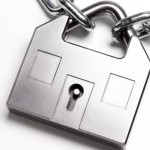 By Michele Lerner of HSH.com
By Michele Lerner of HSH.com
Most consumers are comfortable with their security when banking or shopping online, but house hunting should take your online security to another level.
With 90% of buyers taking to the Internet to search for homes last year, online security experts warn homebuyers that cybercriminals are ready and waiting to take advantage.
“People who are looking for a home have money and criminals are out there watching,” says Dmitry Bestuzhev, head of the global research and analysis team of Kaspersky Lab, an antivirus and security software company in Quito, Ecuador. “It’s like walking around a minefield. Buyers need to take steps to protect their information from identity theft and their computer from viruses.”
Spammers can set up fake websites to capture personal information. The sites are designed to look like legitimate bank or property listing websites.
Start by searching for homes on reputable, well-known websites such as Realtor.com, Zillow.com and Trulia.com.
“People put a lot of trust into the Web but the reality is there’s a bad guy around every corner,” says Robert Siciliano, a personal-security and identity-theft expert in Boston.
Here are seven ways to protect yourself.
 No. 1: Update your security software
No. 1: Update your security software
“You put yourself at extreme risk if you don’t update your security software,” says Linda Criddle, president of LookBothWays, an Internet safety and security consulting firm in Seattle.
“If you go online with a brand-new computer that doesn’t have any security software on it, it takes less than four minutes to have it riddled with malware,” she says. “Everything on that computer is immediately compromised.”
Siciliano says homebuyers need an updated suite of antivirus, anti-spyware and anti-phishing software and a firewall on every Internet-connected device, especially if you’re looking at any financial information.
Bestuzhev says installing the latest software is essential because cybercriminals constantly update their methods.
 No. 2: Update browser and operating system
No. 2: Update browser and operating system
Since hackers exploit vulnerabilities in outdated browsers or operating systems, Siciliano advises homebuyers to switch to the latest versions, which are designed to combat the latest viruses.
“It’s just like your body, you need to have a strong immune system to be resistant to viruses,” he says.
 No. 3: Use a secure connection
No. 3: Use a secure connection
Criddle says you should never look at financially sensitive information on a public Wi-Fi connection. Never enter information on a site unless it has an “https” address rather than an “http” which indicates a secure connection.
“Your mobile network is safe,” Criddle says, “but some people decide to use public Wi-Fi instead to avoid exceeding their data plan. It’s better to pay a data fee then to experience identity theft.”
From a security standpoint, you’re better off using your smart phone than a laptop or tablet, she says.
 No. 4: Check for legitimacy
No. 4: Check for legitimacy
Bestuzhev says proper security software should flag malicious links.
Criddle advises buyers to only use mortgage calculators from legitimate, well-known websites.
She recommends installing McAfee “SiteAdvisor” software, which visually warns you when you’re about to enter a malicious site.
 No. 5: Pick up the phone
No. 5: Pick up the phone
Bestuzhev says it’s best not to send sensitive information by email. He recommends calling your lender to provide sensitive information such as your Social Security number.
 No. 6: Search for reviews and scams
No. 6: Search for reviews and scams
“Once you know a website isn’t malicious, take the time to see if it’s reputable,” Criddle says. “Type the name of the site into your search field followed by ‘review’ and ‘scam’ to see if you’re about to exchange information with a legitimate site.”
Criddle says you should follow these rules for real-estate listing and mortgage sites.
“Once you have a reputable company to work with, you can sign up for email alerts for properties and feel more comfortable clicking on links,” she says.
 No. 7: Get a credit freeze
No. 7: Get a credit freeze
According to personal finance expert Clark Howard, credit freezes are one of the most effective tools against identity theft.
Until you’re ready to apply for a mortgage, you can freeze your credit, which stops any new credit from being opened.
“Even if someone gets your information such as your bank account number or your Social Security number they won’t be able to open any new credit with it,” Siciliano says. “You’ll need to thaw it or unfreeze it when you apply for a mortgage, but then you can relock it once your lender has reviewed your credit.”
Un Comentario